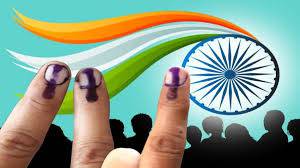Doublespeak, put simply, is language designed to evade responsibility. It’s the strategic manipulation of language to influence the opinions of others by representing the truth in a false manner. According to American linguist William Lutz, doublespeak has nothing to do with bad grammar and is instead "a very conscious use of language as a weapon by those in power to achieve their ends at our expense”.
In his 1989 book "Doublespeak", Lutz establishes four different kinds of doublespeak. The first is simple euphemism, where a substitute phrase is used to soften a harsh reality. We see this use of indirect language all the time, perhaps mostly because of social convention, when we say things like "passed away" instead of "died" or that a coworker of ours was "let go" instead of "fired".
The use of euphemism in these cases is acceptable because the intent isn’t to mislead. The problem only arises when our intent is to avoid the cruel reality of the situation entirely rather than just cushion it. Lutz states the term ‘arbitrary detention’ used by law enforcement officials, as an example of euphemistic doublespeak. Arbitrary detention is the term used when an individual is arrested or detained despite the state having no evidence against them. Terms like these are often used to mask an underlying cruelty or make it seem more palatable.
The second kind of doublespeak is jargon—specialized terms used within a trade or profession that make it difficult for those outside of that trade to understand. While jargon on its own is harmless when used by those who are part of the same industry, the problem arises when it is used on an outsider with the intent of obscuring their understanding of the situation.
The third kind of doublespeak is gobbledygook. It’s the use of big words to explain essentially nothing. Lutz cites political rhetoric as an example of gobbledygook. We observe this when we hear individuals in power spout carefully curated phrases in an attempt to further their political agenda. According to Lutz, it’s imperative that we voice our concerns to politicians who use doublespeak much like we would to "manufacturers of products that malfunction".
The final kind of doublespeak is inflated language designed to make the ordinary seem extraordinary. This kind of doublespeak is apparent in advertising when we rebrand used clothes as "pre-loved" or used cars as "pre-owned" in an attempt to sugarcoat the reality of the situation.
Doublespeak is, at the end of the day, simply a matter of intent. While large corporations and powerful individuals may continue to use doublespeak for as long as they can get away with it, as educated individuals, it's up to us to stop being passive consumers of deceptive language and instead demand linguistic accountability from those who stand to benefit from the same.





